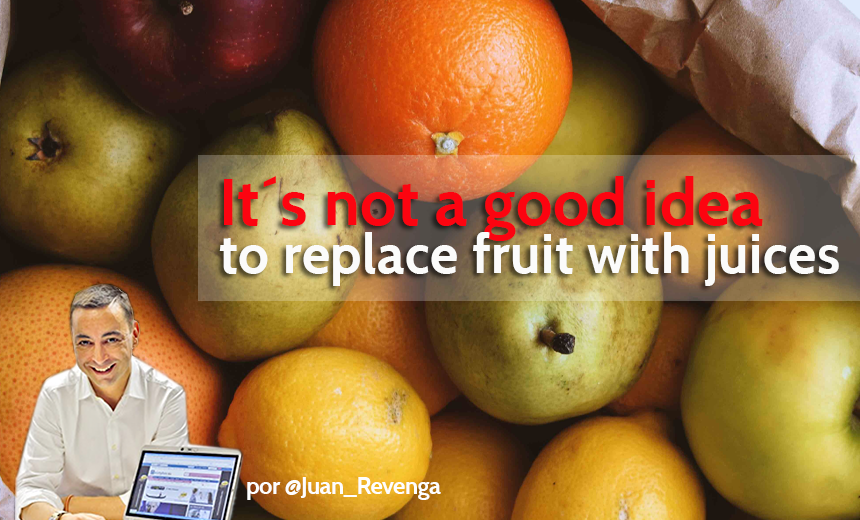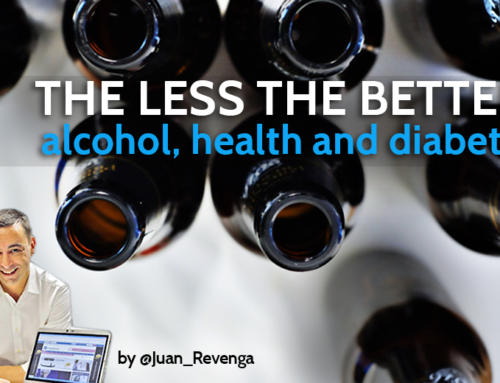Juice concentrates more sugar than fruit
Despite industry marketing pressure, daily or frequent consumpiton of fruit juices is not recommended, even if it is homemade. And much less if it is diabetes around.
The inclusion of juices in the diet on a regular basis, is associated with a worse health prognosis. At least this is what the most prestigious and involved health institutions warn us.
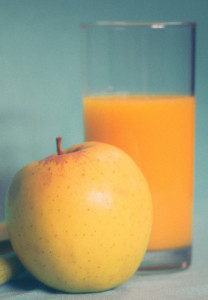 The traditional image of a fruit juice couldn’t be more pleasing and wonderful. For some time now we have been sold as if it were an elixir, not of eternal youth, but of better health. However, with the data in hand, taking into account what really happens with their consumption – and leaving aside those theories more or less complacent – the inclusion of juices in the diet on a regular basis, is associated with a worse health prognosis. At least this is what the most prestigious and involved health institutions warn us.
The traditional image of a fruit juice couldn’t be more pleasing and wonderful. For some time now we have been sold as if it were an elixir, not of eternal youth, but of better health. However, with the data in hand, taking into account what really happens with their consumption – and leaving aside those theories more or less complacent – the inclusion of juices in the diet on a regular basis, is associated with a worse health prognosis. At least this is what the most prestigious and involved health institutions warn us.
The reason is the amount of sugar contained in a juice. Thus, in a ration of juice there is as much sugar as the one found in three servings of and it does not matter if the juice is natural or packaged. In this way by putting three portions of fruit in the form of juice, we put all that sugar in a single glass. In a glass of juice there is the same amount of sugar as in any commercial soda.
That is, compared to the sugar of a piece of fruit that is a lot of sugar. Since juices have this false healthy image it is easy to drink two or three glasses, which multiplies the amount of sugar ingested, thinking that you are making a healthy choice.
The inclusion of juices does not come out well in the recommendations either.
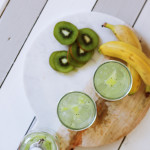 Many health institutions and groups warn of the danger of including fruit juices in the diet, especially if this inclusion is intended to replace the consumption of fruit. Let us specify the opinions of some of these groups:
Many health institutions and groups warn of the danger of including fruit juices in the diet, especially if this inclusion is intended to replace the consumption of fruit. Let us specify the opinions of some of these groups:
The American Academy of Pediatrics warns in its recent document “Fruit juices in babies, children and adolescents: current recommendations” that based on the most current evidence focusing on the incidence of childhood obesity and oral health, it is recommended not to provide any amount of fruit juice in the diet of children under one year. And he maintains that fruit juice does not contribute anything that the child cannot acquire from other food sources (mainly fresh fruit) and that, if at the same time it were included, it would contribute significantly and unnecessarily to increase the amount of sugar in their diet. And from the first year of life, the amounts of juice that are recommended “not to exceed” are frankly small:
- Between the year and 3 years: do not exceed about 120 mL/day of juice (do not exceed half a glass).
- From 4 to 6 years old: do not exceed 120 to 180 mL/day of juice.
From 7 to 18 years old: no more than 240 mL/day of juice (no more than one glass/day)
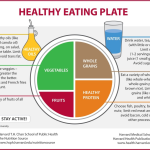
Healthy eating plate
The food guide known as the Healthy Eating Plate edited by the School of Public Health of Harvard University, recommends, for the general population, limiting the amount of fruit juices in their diet, to the point of indicating that if they are present, should never exceed the amount of a small glass of juice a day, nor thinking that this small glass will replace the intake of any portion of fruit. This recommendation is extended to children, as can be seen in the adaptation for younger children of this same guide.
The American Heart Association’s (AHA) position on healthy eating for children and adolescents once again emphasizes the benefits of incorporating sufficient quantities of foods of vegetable origin, fruits, vegetables and vegetables, while inviting to limit the presence of juices.
In our environment and in a report dated 16 years ago, the Spanish Association of Pediatrics argued that fruit juices are not nutritionally equivalent to natural fruits, as they lack fiber and do not stimulate chewing and added that fruit juices do not provide any nutritional advantage or an improvement in dietary habits compared to natural fruit.
On diabetes and juices
If, with respect to the general recommendations, fruit juices are black, in the case of diabetes the picture becomes, more than black, dismal.
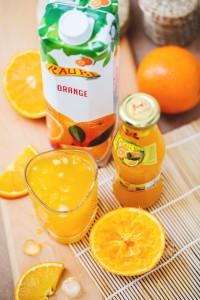
The North American Diabetes Association, a benchmark in its field, gives us some very clear messages regarding the consideration that juices should receive in relation to diabetes: When it comes to eating fruit, the best choice is fresh fruit, followed by frozen and canned fruit in the natural state, with no added sugars. Dried fruits and juices could be a second choice whenever much smaller portions are consumed, as much as 1/3 to 1/2 of a cup, which comes to be between 80 and 125 mL of juice.
Diabetes UK is even more expeditious on this subject and says that juices should be avoided or at least reduced.
When speaking of “maximum” rations of juices (remembering that it is best to avoid them) it refers to already known quantities of 150 mL; half a glass or a little more. It is also worth remembering a fact that this association brings to mind: everyone should include five portions a day of fruits and vegetables and this is just as valid for people without diabetes as for patients with it. Something that in some way we already tell you in this post or in this one.
The UK diabetes patient community has an interesting post on the role of fruit, but more specifically juices and their impact on diabetes. It is worth noting the sentence in which he positions himself stating that despite the nutritional benefits that a fruit juice can have, the truth is that the drawbacks far outweigh those benefits.
Consumption of sugary beverages is associated with increased risk of type 2 diabetes
Finally, it is essential to cite a very recent study published in the journal Diabetes Care, entitled “Changes in Consumption of Sugary Beverages and Artificially Sweetened Beverages and Subsequent Risk of Type 2 Diabetes: Results From Three Large Prospective U.S. Cohorts of Women and Men” which concludes that, even taking into account the limitations of an observational study, higher consumption of sugary beverages was associated with an increased risk of type 2 diabetes. It should be clarified that fruit juices were also included in this category of “sugary beverages”. In fact, although the relationship of sugary soft drinks was already known, this important study carried out by the Department of Medicine at Harvard University emphasized the relationship of fruit juices with diabetes. It is not surprising that newspapers such as The Telegraph or science outreach channels such as ScienceDaily highlighted one of the most eloquent results:
Even half a glass a day of 100% fruit juice can significantly increase the risk of diabetes.
Latest posts by Juan Revenga Frauca (see all)
- Obesity recognized as a chronic disease - 13 October, 2021
- Who said you have to eat everything? - 7 October, 2021
- Diabetes and Alzheimer - 29 January, 2021



